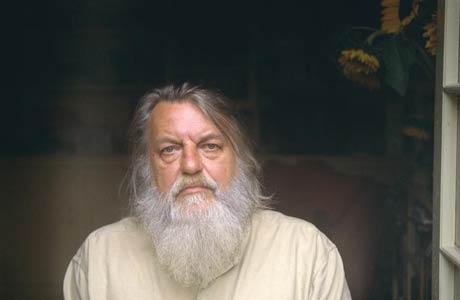Lottie Brazier does what it says on the proverbial tin, and looks into the extensive back-catalogue of this prolific songwriter.
Robert Wyatt is one of those ‘heritage’ artists that you are supposed to know about in order to have some kind of smug cultural one-upmanship over everyone else, which suspiciously seems to arise if you’re under thirty and own a turntable. However, in the case of Robert Wyatt, it really is worth getting to know his musical contributions. This will hopefully give you a brief summary, one by no means conclusive. There’s a very good biography about him at the moment, which you should read if you want something more in depth than a 500-word article.
Wyatt started off as a ‘Canterbury Scene’ musician – he played in the 70s experimental rock band Soft Machine. They usually get conflated with prog, and so lots of stuff, which is quite bloat- ed musically and ironically, shallow, but Soft Machine –were- interesting. They had a self-awareness that stopped them from getting too ridicu- lous, with song titles like ‘Moon in June’ as being subtle plays on jazz song title tropes. Wyatt only stuck around briefly for their first incarnation, from the late six- ties to the early seventies, but left when the rest of the band members decided that they were Syd Barrett (only Syd Barrett is Syd Barrett, even if he doesn’t know that).
It was only until his covers of ‘Ship-building’ a song that Elvis Costello co- write, and ‘I’m A Believer’ charted that he received any sort of mainstream interest. This level of fame wasn’t really his bag, so Wyatt quickly made his way out of the limelight and back into his com- fort zone of relative obscurity. A particular noteworthy album that should be taken back from this obscurity is the 1997 release Schleep, which was co-produced by Brian Eno and Alfreda Benge, Wyatt’s wife. It is worthy of an aside to mention how everything that producer Eno works on becomes imbued with his vibrancy. For instance, Talking Heads’ Remain in Light and Fear of Music, his collaboration with David Byrne on My Life in the Bush of Ghosts, on David Bowie’s Low – one could go on. The same spell is cast on Schleep, with Wyatt’s off-kilter sense of song structure easily complying with Eno’s signature warm-yet-alien synth pads. Understandably, song titles like ‘Heaps of Sheep’ aren’t going to draw in the masses, but underneath this these are really accessible and interesting tracks (the balance of which being no easy task). Despite the cuddly album aesthetic however, Schleep has an unshakeable darkness in its backdrop. Wyatt continues to record with other artists, but due to his overwhelming bashfulness rarely ascribes himself any credit for this. This is characteristic of Wyatt’s demeanour, who miraculously still bears no trace of cynicism.




